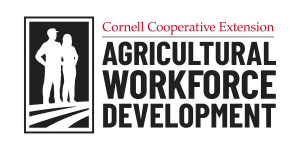The U.S. Department of Labor today issued clear guidance in an FAQ to help H-2A employers combat COVID-19. Farms can now secure additional housing to spread out and promote social distancing for the workforce. As mentioned in an earlier post, NYS Dept of Labor (NYSDOL) is already offering flexibility to use virtual approval of new housing. NYSDOL is encouraging farmers protect employee health and do the right thing by securing additional housing as needed during the present crisis.
Text from the USDOL announcement follows:
Question: Due to the impact of the COVID-19 pandemic, can I use alternative housing that was not initially disclosed in the H-2A job order as a temporary measure to promote social distancing and slow the spread of the virus within my community or during a quarantine period?
The Department understands that agricultural employers are making every effort to maintain the nation’s food supply and meet their contractual obligations to foreign and domestic workers, while taking appropriate steps to slow the spread of the virus. In some cases, COVID-19 containment measures may require an employer to find alternative housing for some of its workers due to social distancing measures that reduce the maximum occupancy of approved housing, to accommodate quarantine periods, or both. In some areas of the country, COVID-19 containment measures may require an employer to find alternative housing for some of its workers due to reduced occupancy standards (i.e., to increase social distancing) or quarantine workers for a temporary period of time. In effect, part of the employer’s approved housing has become temporarily unavailable after certification due to the impact of the COVID-19 pandemic (i.e., an unforeseen reason outside
the employer’s control). Where certified housing becomes unavailable, in whole or in part, the employer must promptly notify the State Workforce Agency (SWA) in writing of the new housing situation. As COVID-19 measures require flexibility and immediate action, an employer may place workers in other employer-provided housing or rental or public accommodation housing that complies with applicable local, State, or Federal housing standards upon notice to the SWA and, then, work with the SWA to provide documentation demonstrating compliance and/or schedule an inspection of the alternative housing following the procedures outlined in 20 CFR 655.122(d)(6).


